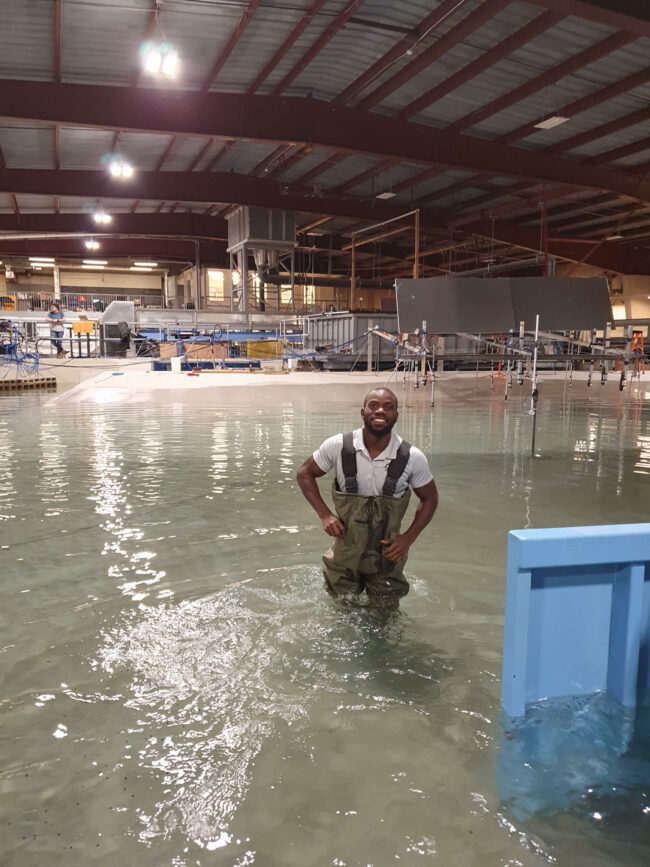Rafiu Oyelakin, a civil engineer, has established himself as a leading authority on urban and coastal resilience, disaster risk reduction, climate change, and adaptation. With over half a decade of experience in the field spanning three continents and over five countries, Rafiu’s expertise is both broad and deep.
Rafiu earned his bachelor’s degree in civil engineering before joining Nok Associates. While with Nok, his work focused on addressing urban water sanitation policy in Nigeria in conjunction with the Federal Ministry of Water Resources. He later expanded his efforts to Germany, the Netherlands, Spain, Slovenia, and the USA, tackling water hazard issues on an international scale.
Urban and coastal areas are under increasing strain due to economic growth and rising human density. With millions of people and billions of dollars at risk from disasters, the importance of resilience is clear. According to the United Nations, over 40% of the world’s population lives in coastal areas. In the United States alone, coastal counties are home to 129 million people. These areas face numerous hazards, including flooding, sea level rise, erosion, cyclones, storm surges, and hurricanes. Compound hazards, where two or more threats combine to create mega-disasters, are also a significant concern.
Addressing these issues on both global and local scales is crucial. Rafiu continuously provides unique, community-tailored adaptive solutions to mitigate hazards, reduce disaster impacts, and implement effective measures. His contributions extend globally, with notable projects in Africa (Nigeria), Asia (China), and North America (the USA).
Rafiu has developed new applications and use cases for global climate model outputs through the World Climate Research Programme. These applications aid in flood risk management across various multidecadal scenarios, supporting climate change adaptation and decision-making to combat loss of life and property due to devastating floods in China. In Nigeria, he has contributed to developing water sanitation policies for the Federal Republic of Nigeria, saving millions of lives from poor water sanitation and indiscriminate wastewater disposal.
In the United States, Rafiu has focused on understanding the physics of the swash zone, the boundary between the ocean and land. This area is critical for coastal erosion and deposition, and coupling inland and ocean models is essential for modelling compound hazards. His research directly benefits the US population, government, investments, and coastal infrastructure by protecting them from coastal hazards.
Rafiu’s track record of excellence in the field is a testament to his doggedness and continuous commitment to advancing urban and coastal resilience.






